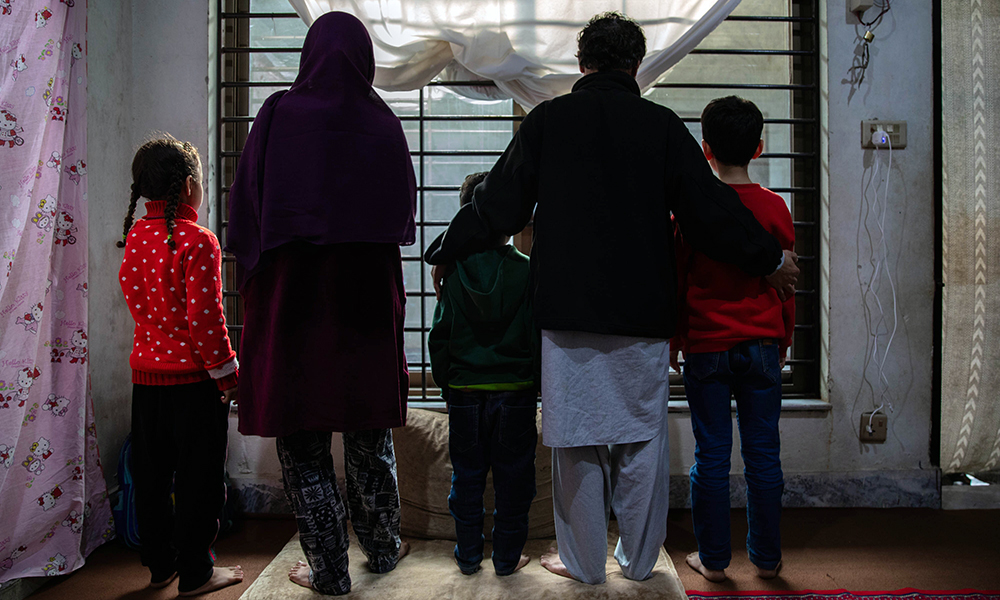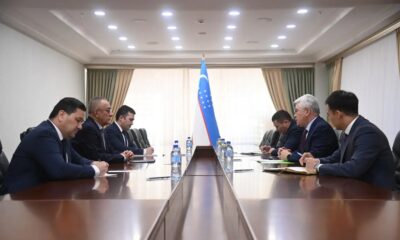Latest News
Daesh, al-Qaeda to establish Islamic Caliphate in Badakhshan

 Local officials in Badakhshan say that some 600 families of Daesh and al-Qaeda, who are citizens of some Asian countries, are present in the province and have chosen the Khustak Valley of Jurm district as the center of their activities.
Local officials in Badakhshan say that some 600 families of Daesh and al-Qaeda, who are citizens of some Asian countries, are present in the province and have chosen the Khustak Valley of Jurm district as the center of their activities.
Badakhshan Governor Zakaria Sowda said, “After Daesh was defeated in Helmand and Nangarhar provinces, it is now working with the Al-Qaeda group, all of whom are foreigners, to build a caliphate center in Dara-e Khustak, Jurm district of Badakhshan. If it is not stopped, it will be a great danger after the peace process in Afghanistan and the Middle East.”
Altafullah Alizai, commander of the army’s brigade in Badakhshan, said, “Dara-e Khustak is under the control of Daesh and al-Qaeda for years. The place has open borders with China, Tajikistan, and Pakistan. It has gold mines, exported by the group to foreign countries through the open borders – a good income stream for them.”
Badakhshan military officials say that the Ansarullah network, the eastern Turkestan group, and the Islamic Movement of Uzbekistan are among the groups working directly with the Daesh and al-Qaeda in Jurm, Warduj and Raghistan districts of Badakhshan province.
They add that more than 2,000 Taliban, in addition to these groups, conduct anti-government activities in 22 districts of Badakhshan.
Asadullah Mohammadi, the Police Chief of Badakhshan, said: “In the last week, a number of security forces were killed and others were wounded. The enemy has also suffered casualties. These groups fighting against the Afghan forces are all foreigners.”
Mohammad Ali Ahmadi, First Deputy Chief of Special Operations in the North, said: “Foreign groups in the valley are using advanced weapons against us. Most of these fighters are citizens of Middle Eastern countries. Up to $10,000 has been recovered from the fighters killed in action.”
Meanwhile, residents of the Khustak Valley, Jurm district say that al-Qaeda and Daesh groups, along with their families, have forcibly taken hold of their homes.
“They kicked us out of our homes and located their families. All are black-skinned foreign nationals,” said one resident of Khustak Valley.
Another resident of the valley, said, “There are foreigners who have weapons and ammunition that our government does not have. All of them use dollars. Wherever they take, the people of that locality are kicked out of their homes.”
It is noteworthy that Badakhshan is one of the most insecure provinces in northeastern Afghanistan.
The province has borders with Pakistan, Tajikistan, and China. The Taliban, al-Qaeda, and Daesh have recently taken over Raghistan district and parts of Jurm district too.
Latest News
Pakistan to repatriate nearly 20,000 Afghans awaiting US resettlement
Authorities will also share verified data of the affected individuals with relevant departments to support implementation.

Pakistan will repatriate nearly 20,000 Afghan nationals currently awaiting resettlement in the United States, The Nation reported, citing official sources.
The move affects 19,973 Afghans living across Pakistan.
A federal directive will instruct provincial chief secretaries and police chiefs in Punjab, Sindh, Khyber Pakhtunkhwa, Balochistan, Azad Kashmir, Gilgit-Baltistan, and the Islamabad Capital Territory to begin the repatriation process immediately.
Authorities will also share verified data of the affected individuals with relevant departments to support implementation.
Following the Islamic Emirate’s return to power in 2021, more than 100,000 Afghans fled to Pakistan, many of whom had worked with the US and UK governments, international organizations, or aid agencies.
Thousands have remained stranded in Pakistan for over four years while awaiting US resettlement clearance.
Prospects for relocation have dimmed amid a suspension of case processing by the US administration, according to The Nation.
Under Pakistan’s Illegal Foreigners Repatriation Plan (IFRP), all Afghan nationals still awaiting US relocation will now be returned to Afghanistan.
Latest News
Terrorist activities observed along Afghanistan borders, says Lavrov

Terrorist activities continue to be observed along Afghanistan borders and along the India–Pakistan–Afghanistan corridor, Russian Foreign Minister Sergei Lavrov said in an interview published on Monday.
Speaking to Russia-based media outlet TV BRICS, Lavrov pointed to ongoing concerns in the Middle East, including its Asian regions.
He highlighted the importance of collaboration with India at the United Nations to advance a global counter-terrorism convention.
Lavrov stated that while the draft convention has already been prepared, consensus on its adoption has not yet been reached.
Russia has repeatedly expressed concern about militant threats from Afghanistan. The Islamic Emirate, however, has dismissed the concerns saying that it will not allow Afghanistan’s soil to be used against any country.
Latest News
Afghan border minister holds phone talks with Iran’s deputy foreign minister

Noorullah Noori, Afghanistan’s Minister of Borders and Tribal Affairs, held a phone conversation with Kazem Gharibabadi, Iran’s Deputy Foreign Minister for Legal and International Affairs, to discuss bilateral border cooperation.
According to the Iranian news agency IRNA, both sides reaffirmed their commitment to strengthening border collaboration, with a particular focus on the ongoing renovation and updating of border markers. They also agreed to accelerate joint technical and legal meetings to enhance coordination.
As part of the agreement, the next meeting of senior border officials from Afghanistan and Iran is scheduled to take place in Iran in 1405 (2026–2027).
-

 Latest News3 days ago
Latest News3 days agoAfghanistan to grant one- to ten-year residency to foreign investors
-

 Latest News5 days ago
Latest News5 days agoTerrorist threat in Afghanistan must be taken seriously, China tells UNSC
-

 Sport4 days ago
Sport4 days agoIndonesia shock Japan to reach historic AFC Futsal Asian Cup final
-

 Sport5 days ago
Sport5 days agoMilano Cortina 2026 Winter Olympics: What You Need to Know
-

 Sport3 days ago
Sport3 days agoIran clinch AFC Futsal Asian Cup 2026 in penalty shootout thriller
-

 Latest News5 days ago
Latest News5 days agoUS Justice Department to seek death penalty for Afghan suspect in National Guard shooting
-

 Latest News3 days ago
Latest News3 days agoAfghanistan says Pakistan is shifting blame for its own security failures
-

 Latest News5 days ago
Latest News5 days agoUzbekistan, Kazakhstan discuss cooperation on Afghanistan

























